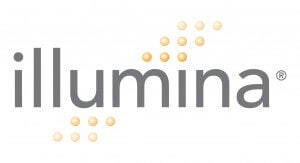 The race to provide you with access to your genome is really heating up. Industry leader Illumina (NASDAQ: ILMN) has completed its first genome sequencing service for an individual at the low-low price of $48,000. That’s almost ten times what Complete Genomics plans to charge, but Illumina is offering the service directly to private individuals, not research groups. In fact, this is the first time any one person has had their genome sequenced for less than $50k. Illumina’s performance shows that it is still one of the forces to be reckoned with in whole human genome sequencing.
The race to provide you with access to your genome is really heating up. Industry leader Illumina (NASDAQ: ILMN) has completed its first genome sequencing service for an individual at the low-low price of $48,000. That’s almost ten times what Complete Genomics plans to charge, but Illumina is offering the service directly to private individuals, not research groups. In fact, this is the first time any one person has had their genome sequenced for less than $50k. Illumina’s performance shows that it is still one of the forces to be reckoned with in whole human genome sequencing.
What are we to make of Illumina’s successful personalized genome sequencing service? It stacks up well against Knome’s KnomeCOMPLETE™ service which is perhaps the only other successful individual genome sequencing service on the market at the moment. Knome is trying hard to remain a contender in the field, but at $99.5k, it’s more than double Illumnia’s price. With comparable capabilities and results, price becomes the real determining factor between those two companies.
Of course, it’s hard to take either seriously as a contender against Complete Genomics. $99,500 versus $48,000 versus $5000, which price would you want to pay? Of course, CG is only offering that low price to orders of 40+ genomes. In orders of 8+, they’ll be charging $20,000 (see our earlier article for more). The price for a single solitary genome could be even higher. But it’s actually unclear whether Illumina or Complete Genomics is really after the individual customer market. We know people who are after the individual market, and may be offering it at only $1000, and we’ll get that story published soonish. (It seems like we mention this mystery company every other day. Sheesh)
While CEO of Illumina, Jay Flatley was the first to get his genome sequenced under the new system, the first official customer was Herman Hauser of Amadeus Capital Partners. According to the Illumina website, both men intend to place their genomes in the public domain (potentially doubling the number of such genomes) in order to facilitate understanding and research. The next two customers on the docket are preeminent scholar of African American studies, Henry Louis “Skip” Gates, Jr. and his father, Henry Louis Gates, Sr. As Skip Gates hosted and produced two TV specials on African American heritage that featured DNA tests, I anticipate his genome results will facilitate the production of a third show.
There are two broad approaches to the task of analyzing the entirety of your DNA. You can specialize as much as possible, and in doing so reduce costs, or you can keep your range of applications wide, but sacrifice in economic efficiency. Complete Genomics represents the first approach, Illumina the second. Illumina can sequence DNA and RNA and not just from humans. Their sequencing services are broad, rigorous, and perhaps the most trusted in the industry.
So that’s how I view Illumina’s latest success: just another feather in a well-feathered cap. Unless Illumina drastically brings the costs down, Complete Genomics, or another company like them, will dominate the human genome sequencing market. If Illumina does cut the price, they certainly will enjoy a large share of the market. They have broad respect in a variety of DNA testing fields and they are working with 23andMe, Knome, deCODE Genetics, and Navigenics in secondary data analysis.
Knowledge of your genome is likely to be one of your strongest assets in the decades to come. Current uses and understanding of genetics tend to focus on relatively few genes – single nucleotide polymorphisms or SNPs. Companies like 23andME help you determine ancestry, risks for diseases, and important trait information just by using SNPs (and some short sequences of DNA). That’s why services from those companies are so cheap. As research into genetic traits continue, the range of ‘interesting’ DNA segments will increase. Whole genome sequencing has the potential to tell you about every inherited aspect of your body. In that light, sequencing your complete genome is likely to change from novelty to necessity.
Anyone who’s read my posts before probably knows that I love when businesses compete. The only thing that makes me happier than knowing someone is trying to provide wide-range access to genome sequencing, is knowing that someone else is trying to do it even cheaper. The public needs that access sooner rather than later. Today, knowing your genome just gives you a little more information for you and your doctor to use when planning your healthcare. Tomorrow, understanding your genome could help you extend your life by 30 years, increase your intelligence, or make you glow in the dark. It all starts with sequencing, and thankfully no one has a monopoly on that. Yet.


